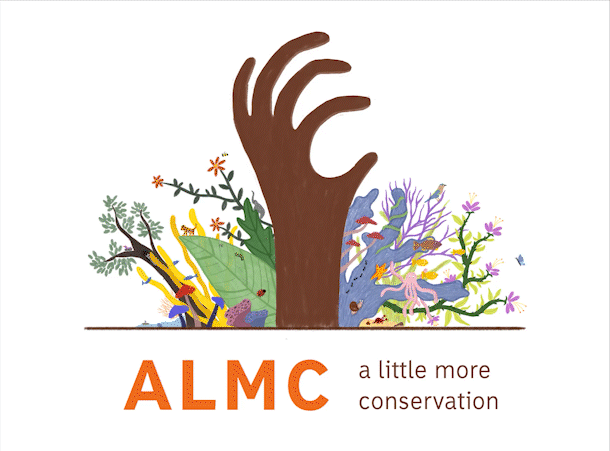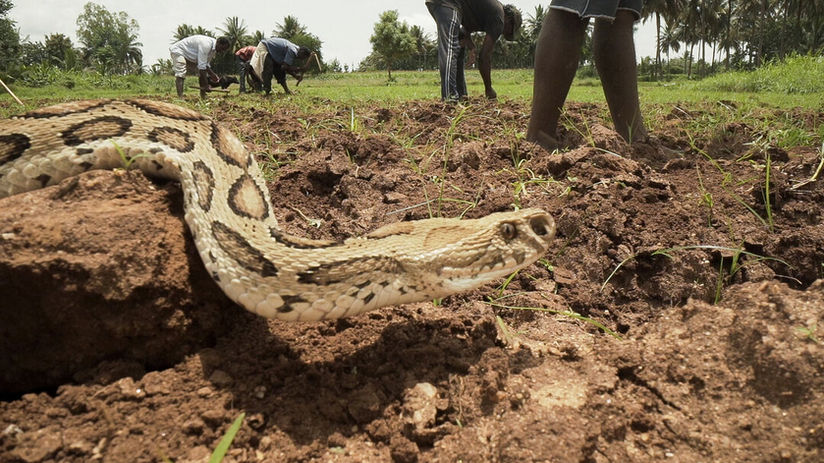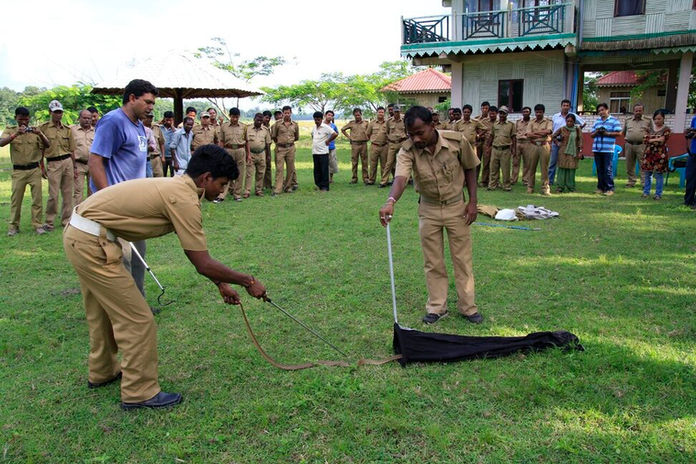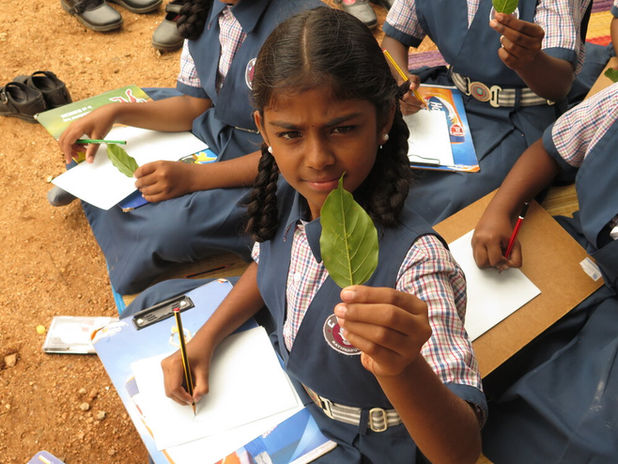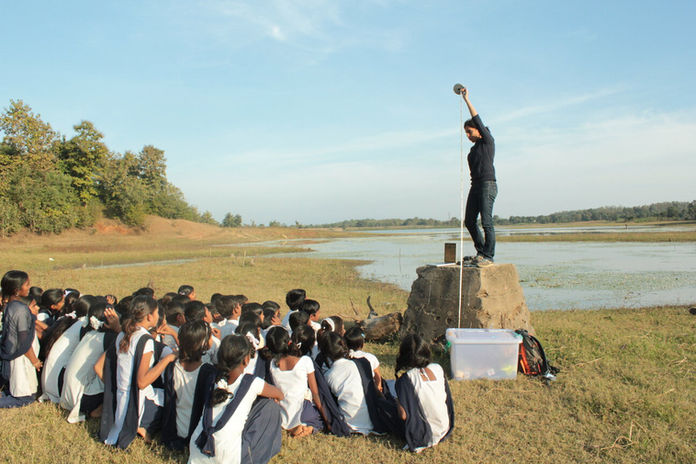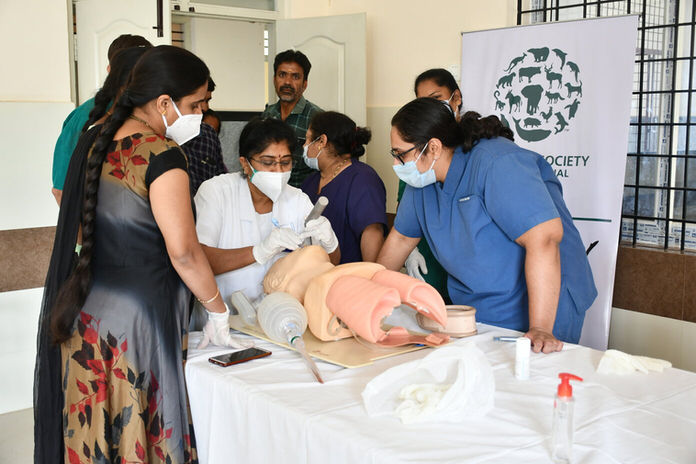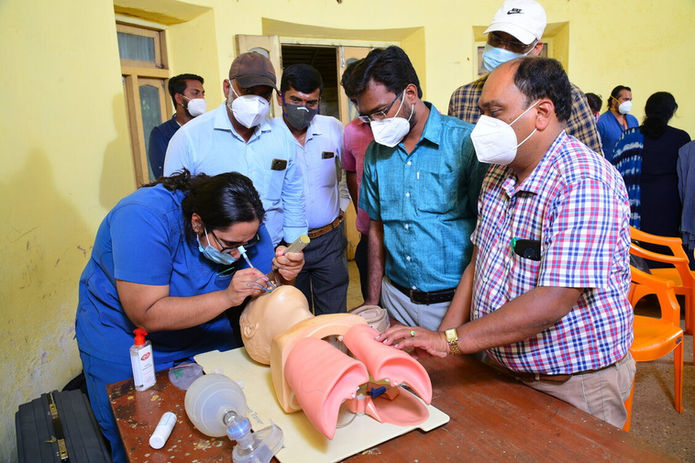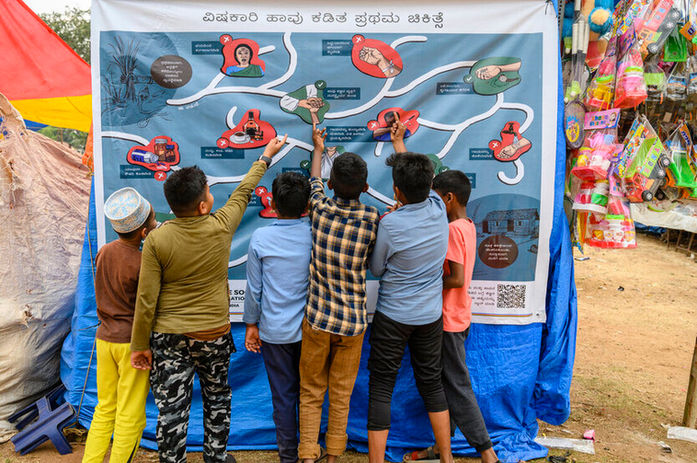A little more about The Liana Trust (TLT)
From leading eye-opening research on snake behaviour, to helping develop sorely lacking antivenom treatments, the Liana Trust is working on enabling humans to coexist with snakes (and, ultimately, nature).
It’s a big ask - especially when you consider that India has the dubious honour of being the Snake Capital of the World - but it’s one that Gerry Martin, the co-founder of The Liana Trust, believes is easier than we’d think. The main blocker here isn’t the snakes, but us humans.
The current human-snake conflict situation:
We, as a country, currently have a very dim understanding of how to both prevent and treat snake bites.
Despite human-snake conflict being a bigger issue in India than all other forms of human-wildlife conflict combined (yes, combined), this predominantly rural India based issue is largely overlooked.
That's where the real tragedy lies; we just haven’t paid enough attention to it, and that’s commensurate with our knowledge of how those who are affected by it can avoid it.
How's TLT addressing this?
The Liana Trust is deploying a deeply considered framework that tackles all the known complexities of this issue (listed in detail, under Projects), from studying snake behaviour to prevent snake bites, to helping physically prevent bite by distributing gumboots.
This includes more immediate measures like attending to Snake Calls, where they physically remove snakes from people’s homes in the region, and use these opportunities to educate those present on how to coexist with snakes.
Studies published by The Liana Trust (and collaborators)
Russell's Viper Venom Variation: Biogeographic venom variation in Russell’s viper (Daboia russelii) and the preclinical inefficacy of antivenom therapy in snakebite hotspots
Spectacled Cobra Venom Variation: Biogeographical venom variation in the Indian spectacled cobra (Naja naja) underscores the pressing need for pan-India efficacious snakebite therapy
A Wolf in Another Wolf’s Clothing: Post-Genomic Regulation Dictates Venom Profiles of Medically-Important Cryptic Kraits in India
Beyond the ‘Big four’: Venom profiling of the medically important yet neglected Indian snakes reveals disturbing antivenom deficiencies
Should I stay or should I go: Escape behaviour of Russell’s vipers, Daboia russelii (Shaw & Nodder, 1797) in India’s agricultural landscapes
Beyond human-snake conflict
Apart from their many (interlinked) initiatives that are involved in the mitigation of human-snake conflict, The Liana Trust even runs workshops and initiatives to help communities cultivate a deeper understanding of the wonders and importance of the natural world we inhabit, and move and empower them to protect the diverse creatures that live within it.
A large part of this is focused on educating young minds. Their rural school outreach initiatives, run by co-founder Chandini Chhabra, educate students through conservation-focused projects that follow thoughtful and highly interactive methods to give them a deeper understanding of a subject (for example, even writing and publishing their own books!). Through this, The Liana Trust is attempting to bring forth a generation of caretakers of nature, and to instill within them the sense of wonder and compassion for all forms of life that, they believe, moves us to protect them.
Their own compassion for nature and all its forms is abundantly clear through the sanctuary they provide to a variety of rescued creatures - from abandoned and injured farm animals to exotic reptile species that could wreak havoc on our local ecosystems if released.
Their care extends far beyond just providing food and medical treatment, as they do all they can to make sure each animal is housed in an environment that meets their unique needs in order to thrive.
TLT'S IMPACT (SO FAR)
30,000+ adults and children
educated on snake-bite prevention
600 sets of gumboots and torches distributed to prevent snake bites
All medical staff in Hunsur Taluk trained on the treatment of snake bites
300 Forest Department staff trained on how to help people in conflict with snakes
5 snake-behaviour studies published on ResearchGate
Venom samples collected from over 12 states and 1 Union Territory for antivenom development
Operating the country's 1st serpentarium focused on snakebite and venom research
Why we love the Liana Trust
Human-snake conflict is as significant an issue as it is overlooked, and they’re doing pathbreaking work that has the potential to save countless lives
Their focus on scientific research, which has already provided valuable insights on snake behaviour and snakebite prevention through the studies they’ve published (linked further below)
Their compassion and love for nature’s wondrous creatures is explicit in the way they care for the many creatures that live on and even visit their lush forest farm (as would be chirpily attested by Maggie, a Oriental magpie-robin that frequently flies into their dining space and politely requests for some worms to snack on)
Their inspiringly sustainable way of life, where they make their own bio enzyme-based cleaners, use solar energy to power electricity wherever possible and keep finding ways to repurpose and reuse materials for the endless requirements of a beautiful space that’s simultaneously a farm, sanctuary, office, home and more!
FUN FACT
Snakes use their forked tongues to pick up and send odour chemicals to the roof of their mouth, where a special organ (called the Jacobsons’ organ) interprets all sorts of smells for them - including water! The two sides of their forked tongue even enables them to gauge the direction that a scent is coming from, which helps them navigate towards it.

